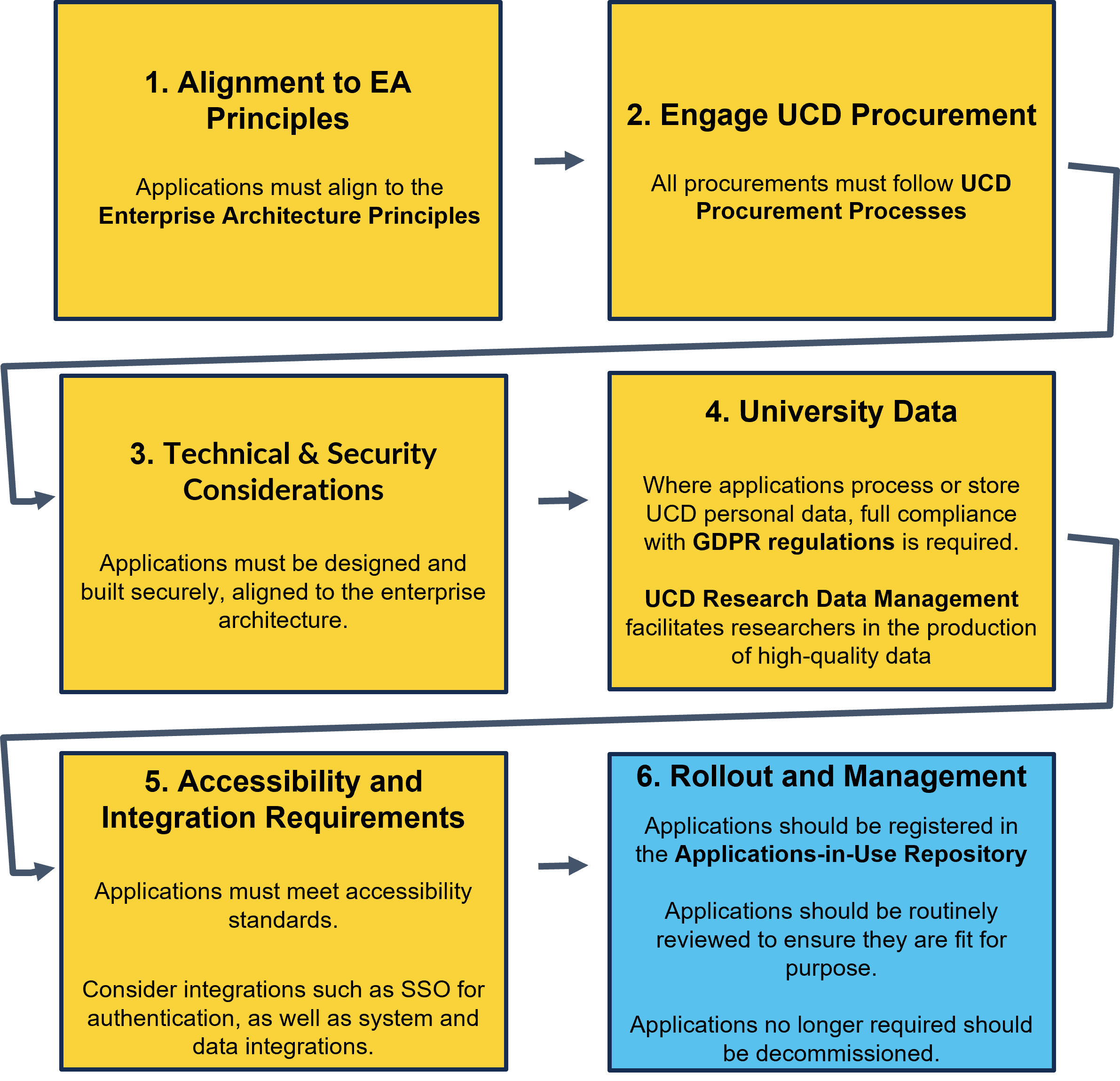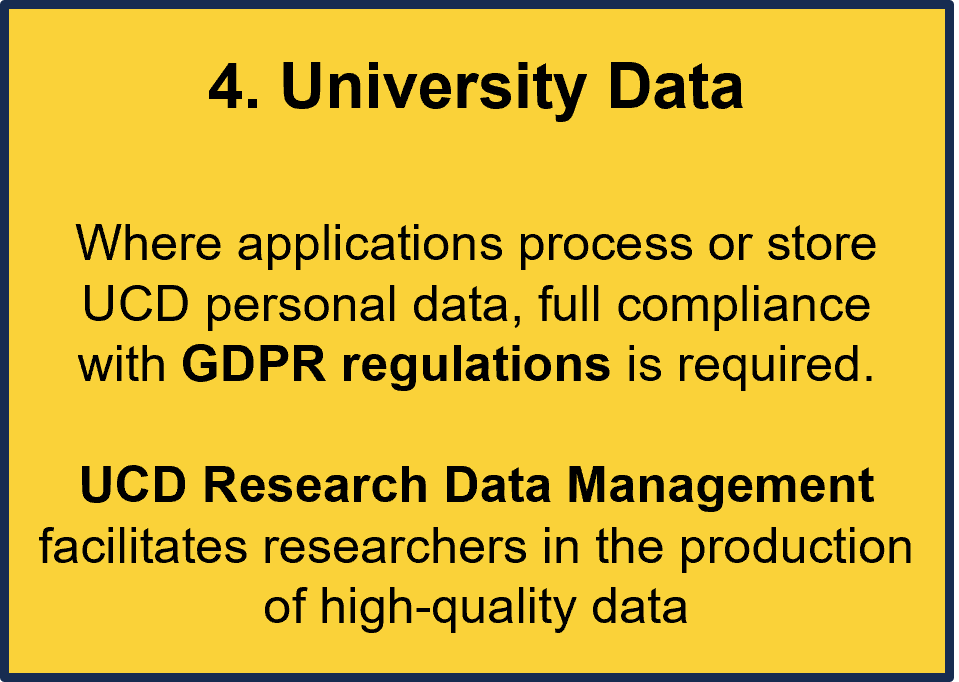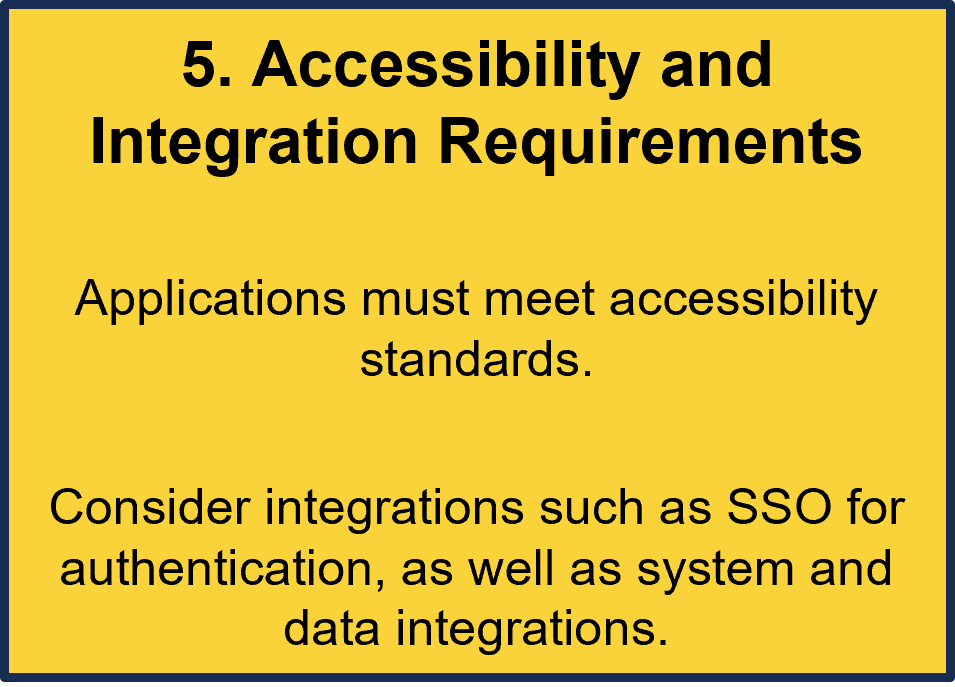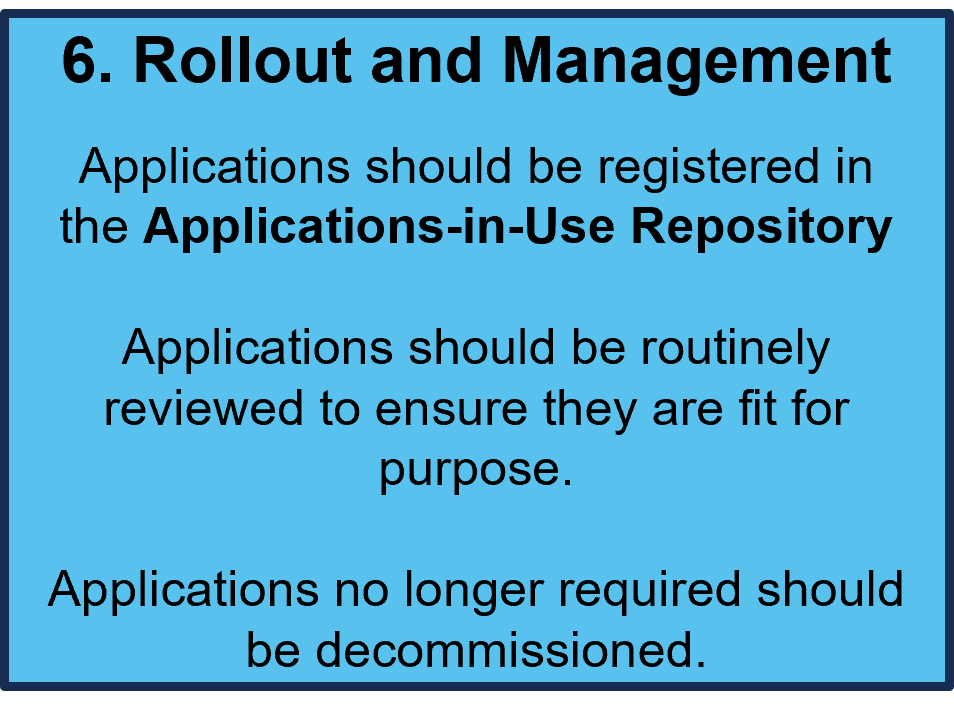
Considerations before buying, developing, or deploying new applications in UCD
This page outlines key considerations for schools or units planning to deploy an application locally, focusing on alignment with UCD’s enterprise architecture principles, policies, technical and security standards, as well as compliance with regulatory and legal requirements.
It does not constitute an approvals process and does not imply endorsement of the application for use within UCD.
For assistance in navigating through these considerations contact IT Partnership ((opens in a new window)itpartners@ucd.ie), and we will respond to you as soon as possible.
Assistance will depend on the nature and complexity of the request, as well as existing priorities and commitments.
All software and cloud solutions proposed for deployment in UCD must align with the University’s priorities and policies, in support of UCD’s strategic initiatives, improving operational efficiencies, enhancing the user experience and safeguarding against risks & cyberthreats.
IT Services is resourced to be responsible for a large portfolio of major university-wide IT applications and consequently can offer only limited assistance to Schools/Units wishing to deploy their own applications locally.
Therefore, assistance is primarily confined to providing Single Sign-On (SSO) capability - which adds a layer of protection for users against cybercrime (as it reduces the need for multiple passwords or reused credentials). SSO is only available for applications supporting SAML2 and that meet all configuration requirements.
Before proceeding, Schools/Units should carefully assess whether they have the necessary resources and capabilities/expertise to undertake:
-
the necessary security assessment;
-
the ongoing technical management; and
-
complete the activities needed to successfully deploy a digital software solution.
This page highlights some important considerations to assist you with this decision.

Overview
What is an Application?
An application refers to any software or cloud-based service that delivers functionality to the UCD community, whether accessed via a web browser, mobile device, or desktop, or that enables functionality for other applications.
Applications may be bespoke or packaged solutions, managed internally or by third parties, and may be available free of charge or on a paid basis.
In Scope
Any software or cloud-based application deployed by a School or Unit that provides functionality to the School/Unit or wider UCD community.
Out of Scope
Applications delivered as projects by IT Services, as part of the established IT projects planning process. See here for details and how to submit an IT project request.

Alignment to UCD's Enterprise Architecture Principles
- The UCD Enterprise Architecture Principles inform, guide and govern the design and deployment of applications across the University.
- Alignment with these principles is a requirement for all applications - departmental solutions in individual schools and units through to centrally-managed university-wide platforms.
- A key consideration is to avoid the deployment of applications with duplicative or overlapping functionality. Please engage with IT Partnership ((opens in a new window)itpartners@ucd.ie) to make sure that the sought functionality is not already provided or possible through an existing application.
- Additionally every application must have both a Business Owner and a Technical Owner. These are roles with clearly defined responsibilities to ensure that applications are designed, deployed, managed in a secure, sustainable, and compliant with all relevant UCD policies and regulations. See Application Ownership Roles & Responsibilities.

Adherence with UCD Procurement Guidelines is a Requirement
- As part of any project, it is important that project team engage with UCD Procurement as early as possible. They will guide on thresholds, particular frameworks available, and timeline considerations.
- The University is subject to EU and National Public Procurement legislation and all staff with responsibility for purchasing should be familiar with UCDs Purchasing Unit procedures and quotation & tender compliance requirements.

Applications must be Secure and aligned to UCD's Policies
- IT related Policies and Guidelines are provided to protect applications, safeguard data, and comply with legislation.
- The Acceptable Use Policy provide all those who use the University’s IT Resources with clear guidance on the acceptable, safe, respectful and legal way in which they can use the University’s IT Resources.
- To help protect University applications and data from internal and external cybersecurity threats, you should review (opens in a new window)Assessing the Security of Digital Solutions with whoever will manage your application, before buying, developing or deploying a new application.
- Schools and Units must consider whether AI functionality is involved in the application they are deploying, and if so, what that might mean in terms of oversight, risk, and ethical considerations. See UCD AI Governance Principles
- A predefined set of Non-Functional Requirements is provided without support or assistance and should be tailored to the intended solution and confirmed as complete with Technical Owner. These should be complemented by Functional Requirements developed by the Business Owner.

University Data
Personal Data
- Where an application involves processing or storing UCD personal data, full compliance with GDPR regulations is required.
- A DPIA must be completed where UCD collects, stores or processes personal data, and a Transfer Impact Assessment must be undertaken where personal data is exported outside the EEA.
- The UCD DPO has developed a (opens in a new window)comprehensive UCD Data Protection Checklist to guide UCD academic and administrative units through the key steps involved in the selection and acquisition of applications.
- A library of policies, procedures, training, guidance, templates, and contact information to support you through this are available on the UCD GDPR website.
Research Data
- Where an application involves processing or storing of Research Data, then UCD's (opens in a new window)Research Data Management site will help you ensure that your research data is stored, retained, made available for use and reuse, and disposed of according to best international practices, as well as in compliance with legal, statutory, ethical, contractual and intellectual property obligations, and the requirements of funding bodies and publishers.

Accessibility & Integrations
- Accessibility standards (e.g. W3C WCAG2.1 or ISO/IEC 40500) and legislation (e.g. EU Directive 2016/2102), must be assured for all applications. For UCD websites (managed through T4 CMS), IT Services provides Silktide to test and assess website accessibility.
- Single Sign On (SSO) should be used wherever possible.
- Where SSO integration is required, please contact the IT Helpdesk.
- For other application or data integration requests, please contact IT Partnership ((opens in a new window)itpartners@ucd.ie)

Rollout, Routine Management, and Retirement
- Applications deployed should be registered in the UCD Application Register.
- It is recommended that applications are routinely assessed to ensure they are fit for purpose and meeting University requirements.
- Applications that are no longer required should be decommissioned, including secure data destruction, cleanup and release of infrastructure resources such as virtual instances, physical servers, DNS registration, and removed from the Applications-in-Use Repository.
- IT Services can help you follow the correct decommissioning steps.
Quick Links
- UCD Procurement site
- (opens in a new window)UCD Procurement Guidelines
- UCD Data Protection and GDPR site
- (opens in a new window)UCD Data Protection Checklist
- UCD IT Policies and Guidelines
- Cloud Computing Guidance
- UCD EA Principles
- UCD Application Register
- (opens in a new window)UCD Research Data Management
UCD IT Services
Computer Centre, University College Dublin, Belfield, Dublin 4, Ireland.Contact us via the UCD IT Support Hub: www.ucd.ie/ithelp
